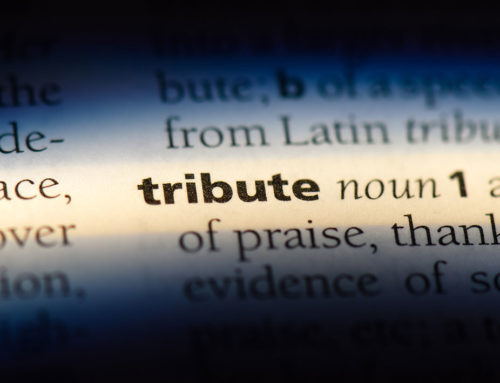The closer Tiger Woods moves toward becoming golf’s undisputed greatest pro and first billionaire athlete, the more likely he is to continue to resist any temptation to help guide more African American pros into the mostly white world of golf. Theories as to why Woods has opted to take a not-my-problem posture abound… Some suspect that Woods believes that the power he’s acquired as the game’s most dominant pro might be severely diminished if he used it to help bring more African Americans to the pro tours. Others suggest that he believes that calling attention to his ethnicity might devalue his status as an international sports icon. Then there are those who say that his most significant contribution would be simply to continue to do what he’s doing: letting the world and the record books show that Tiger Woods, not Jack Nicklaus, not Bobby Jones, not Ben Hogan, is the game’s all-time greatest pro. And that, they say, explains his tunnel vision, his reluctance to allow any distractions, especially those with racially sensitive tentacles, to deter him from his mission.
The Woods Supremacy on the PGA Tour continued in Atlanta Sunday when the 31-year-old pro won the Tour Championship ($1.26 million) and the year-long FedEx Cup, which paid a bonus of $10 million toward his retirement.
“It’s been a phenomenal week,†Woods said.
More accurately, Woods is having a phenomenal career. Last month, he captured his 13th Grand Slam title and his fourth PGA Championship with a 272-eight under four day total. The victory kept him on course to reach the Woods Ultimatum – 18 Grand Slam titles and beyond. He is expected to pass Jack Nicklaus within the next five years and an even greater army of Tiger fans surely will be mesmerized by the chase.
His decade long reign as golf’s premier player, and status as the lone African American on the PGA Tour, have attracted millions more fans to the sport and significantly spiked the annual PGA Tour purses. In 1997, the annual PGA Tour purse was $75.2 million; ten years later it’s $266 million. His incomparable talent and boy-next-door charm are the primary reasons corporate America reps continue to bang on his door, begging him to lend his name or likeness to their products. People who have never seen, nor care to see a golf course, tune in when Tiger plays.
That the PGA Tour’s only African American pro is most responsible for golf’s booming industry oozes with irony. The PGA Tour, which once barred African Americans from its events during an era of racial segregation, now finds itself embracing a man who has become golf’s most celebrated superstar. Despite Woods’ popularity and success in attracting more fans of all colors in the last decade, no other African American has joined him on the PGA Tour.
Woods has been criticized for not supporting, publicly, the careers of promising African American players, including Tim O’Neal. Asked if Woods had ever helped, O’Neal told the Washington Post last April, “I wouldn’t expect him to and that’s just me. Maybe some people think he should, but I don’t expect that and I’d never ask.â€
O’Neal is the only African American on the Nationwide Tour, a step below the PGA Tour and Jim Dent and Jim Thorpe are the only African Americans on the PGA Senior Tour. There are no African Americans on the LPGA Tour.
Arthur Piccolo, who has written a series of stories critical of Woods for Black Athlete Sports Network (blackathlete.net), said the game’s top-ranked pro hasn’t shown any interest in using his influence to increase the African American presence on the pro tours.
“(Woods) could have had an influence in bringing more blacks into professional golf or had the PGA (Tour) face the problem,†Piccolo said. “Tim O’Neal is a symbol of that failure. It’s one of the most glaring stories in sports today that’s being ignored. No one is covering Tiger Woods’ refusal to care.â€
Woods showed signs of concern about race as a rookie pro in 1996 in an edgy “Hello World†Nike ad in which he said that there still were golf courses in America that wouldn’t let him play. A year later, after capturing the Masters, his first Grand Slam title, he acknowledged the role African American pioneers Charlie Sifford, Lee Elder and others had in making that historic victory possible. He continued to add titles and massive purses to his legacy but discontinued the edgy ads.
Since turning pro, he has collected close to $100 million in tournament winnings. Golf Digest said last January that Woods’ prize money, combined with endorsement income, which runs at least four times more than tournament winnings, places him on course, to become the sports world’s first billionaire athlete.
“Tiger Woods is a marketing machine,’’ Piccolo said.
The son of a Thai mother, Kultida, and African American father, Earl, a career Army officer, who died last year, Woods’ connection to the black community has been limited. His father taught him to play golf on public and military golf courses and his mother shaped his sense of religion and family values. He grew up in Cypress, California and now lives with his Swedish wife, Elin, and daughter, Sam Alexis, in Windermere, Fla.
“His major connection to the black community was his father,†said Cynthia Barnes, a New York based child, adolescent and adult psychiatrist. “He’s moved out of the African American world and I don’t see any reason for him to embrace it. There’s nothing pulling him there. A lot of people don’t want to be identified with African Americans because there’s no value added. And he’s clean, there’s not a whole lot of controversy around him.â€
Woods knows that his silence on race is worrisome to many African Americans, but he seems willing to live with that.
Former NBA star Charles Barkley, who has known Woods since he was a Stanford undergraduate, said he frequently encouraged Woods to discuss publicly his feelings about race. In a chapter of Barkley’s book, Who’s Afraid of a Large Black Man (Penguin Group, March 2005), Woods does just that, expanding on – among other things – his early exposure to racism. On his first day of kindergarten, Woods says he was tied to a tree by a group of sixth-graders who spray-painted the N-word on him. He also discussed his feelings about being raised in two different cultures and emphasized that he would use his foundation to help everybody, not just one race, one religion or one sex.
“It’s about helping the next generation have a better future. I will be a leader for everybody,†Woods says.
Woods noted, too, that the late Arthur Ashe is remembered more for his social impact than as a tennis champion. A strong civil rights activist, Ashe won international acclaim as a humanitarian, primarily for his efforts as an AIDS activist. Woods says he hopes to have a similar impact when he retires from golf.
For now, Woods seems more intent on being like Mike, as in his good buddy Michael Jordan, another African American sports hero, with significant crossover appeal. NBA superstar Jordan stayed clear of racially sensitive issues throughout his career.
Like Jordan – or perhaps influenced by Jordan – Woods seems to have bought into the notion espoused by the top sports management firms that African American superstars transcend race and that they should steer clear of racial issues/ causes. Before retiring as USA Today’s tennis writer several years ago, I was told on several occasions that IMG representatives complained whenever stories I wrote involving the Williams sisters – Venus and Serena – touched on racism. Wouldn’t sports management firms do their clients, their country and the world community a greater service by encouraging influential athletes – black and white – to condemn racism and promote fairness and racial justice on and off the playing field?
New York Times sports columnist Bill Rhoden contends that African American superstars, and particularly Jordan, have refused to use their celebrity to assist impoverished African American communities. In his book, Forty Million Dollar Slaves (Crown, July 2006), Rhoden wrote, “Today’s legends, those with perceived “black power,†like the deified Michael Jordan, seldom wield it. What (Jordan) did to inspire the multitudes – that core of black people estranged from power, the seemingly permanent underclass – beyond hitting game winning jump shots, is hard to find.â€
To be clear, Tiger Woods gives back creatively, generously and often times with a personal touch. The Tiger Woods Learning Center, a 14-acre education facility in Southern California, provides math, science and language arts programs designed to take young people beyond the classroom and change the role of education in the world. His foundation provides eight high school scholarships, five of which are awarded to minority junior golfers through the National Minority Junior Golf Scholarship Association. He recently wrote a letter of recommendation for black pioneer Charlie Sifford to receive an honorary doctorate from a historically black university.
Eleven years ago, Woods’ father, Earl, told Sports Illustrated that his son “will do more than any other man in history to change the course of humanity. He is the Chosen One. He’ll have the power to impact nations. Not people. Nations.â€
Perhaps some day he will. But for now, it would be nice to see him use his enormous influence openly to help other African Americans join him on the playing field. Ashe did.
In the prime of his playing career, Ashe frequently encouraged and occasionally sponsored talented young African Americans, who dreamed of joining him on the pro tennis tour. He knew that most African American youngsters considered tennis to be a “white man’s sport.†Still, he encouraged those with varying degrees of talent to be the best that they could be. He helped numerous black teens win athletic scholarships to major colleges, including UCLA. He practiced with others on many occasions, knowing that his input as a champion was as important as the financial assistance that he also gave.
Tiger Woods should do no less for any player who shows potential and strong desire, including those who happen to be African American. His goal of helping everybody should exclude nobody. No one worth having as a friend, financial advisor or fan would criticize him for doing that. Just do it now, Tiger. Not later.



Leave A Comment